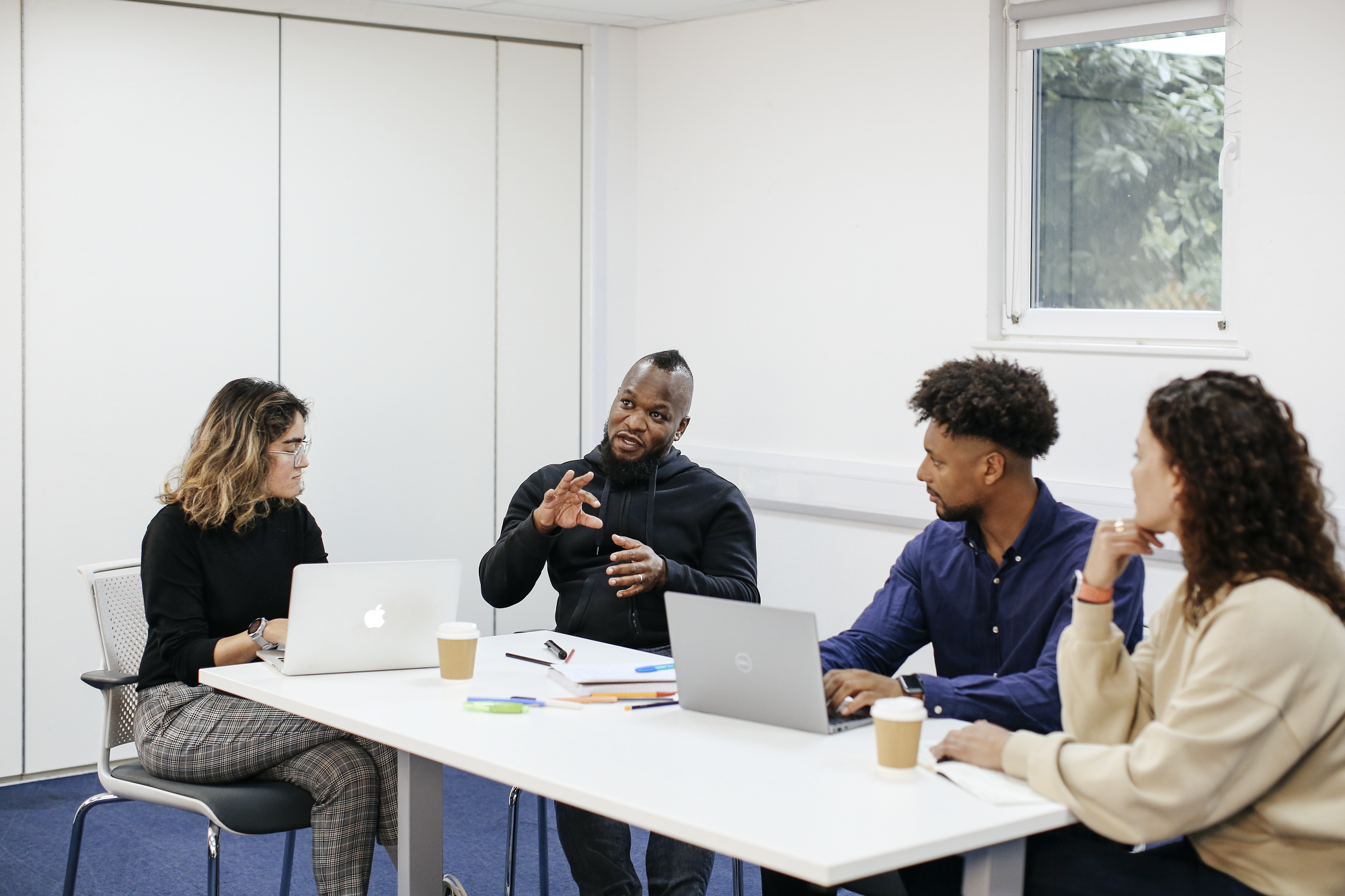
Meet our clinician tutors
Teaching real-world experience, every day
The staff that treat our patients also teach our students.
This means that you receive the most up-to-date, relevant and real-time education that will prepare and empower you for your career in mental health, social work and social care, or management and leadership.
- Anna
- Dexter
- Francesca
- Martin
- Matthew
- Nsimire
- Shila
- Jason
- Shantel
- Rodrigo
- Gwen
- Alexandra de Rementeria
- Emily Mercer
- Nick Waggett
- Louise Grant
Meet Anna Harvey, Senior Clinical Lecturer on ‘Advanced practice and research social work and social care (D55)’

I began working with people in the community as a volunteer many years ago in Glasgow. I worked with homeless people in a therapeutic community and seven years’ experience of working and living with rough sleepers and then young homeless people opened my eyes to the devastating effects of deprivation, traumatic childhood experiences, addiction and mental health problems.
This experience made me curious about how I could work more effectively with people at an earlier stage in their lives so that the effects of trauma could be addressed at an earlier point or even prevented or ameliorated. I decided to become a children and families social worker and I was involved in the much heavier end of child protection, where physical abuse and sexual abuse were the focus.
These extreme experiences disturbed me, and were highly distressing to everyone. I wondered how I could understand the tragedy behind the work better and remain compassionate and therapeutic in my approach.
I decided to apply for a professional doctorate in emotional wellbeing at the Tavistock and Portman and I subsequently began psychoanalysis. I realised I had unconsciously become the social worker that I never had. This realisation helped me to move away from repetitious need to re-enact my own childhood trauma through my work.
Obviously, walking on stage and receiving my doctorate award was the greatest moment in my professional career but I also gain huge pride in seeing my students wear a floppy hat! It is my greatest pleasure to be working with the advanced practitioners who choose to study with us at the Tavistock; I learn so much from my students.
The students on the Advanced practice and research social work and social care (D55) course are curious, courageous and thoughtful practitioner researchers. Their research studies often shine a light on the experiences of marginalised groups and we have a strong history of black students achieving doctorate level. It makes me hugely proud that my knowledge can assist in the progression of knowledge of social work and social care practice in the field.
If anyone is unsure about studying at the Tavistock, I say, “Come and talk to any of us!” We are available for discussions anytime of the year; we are approachable and responsive. Our previous or current students could also help you to decide about whether this is the right course for you and we can put you in touch with them to help you decide.
Meet Dexter Benjamin, course lead on ‘Psychoanalytic studies (M16)’
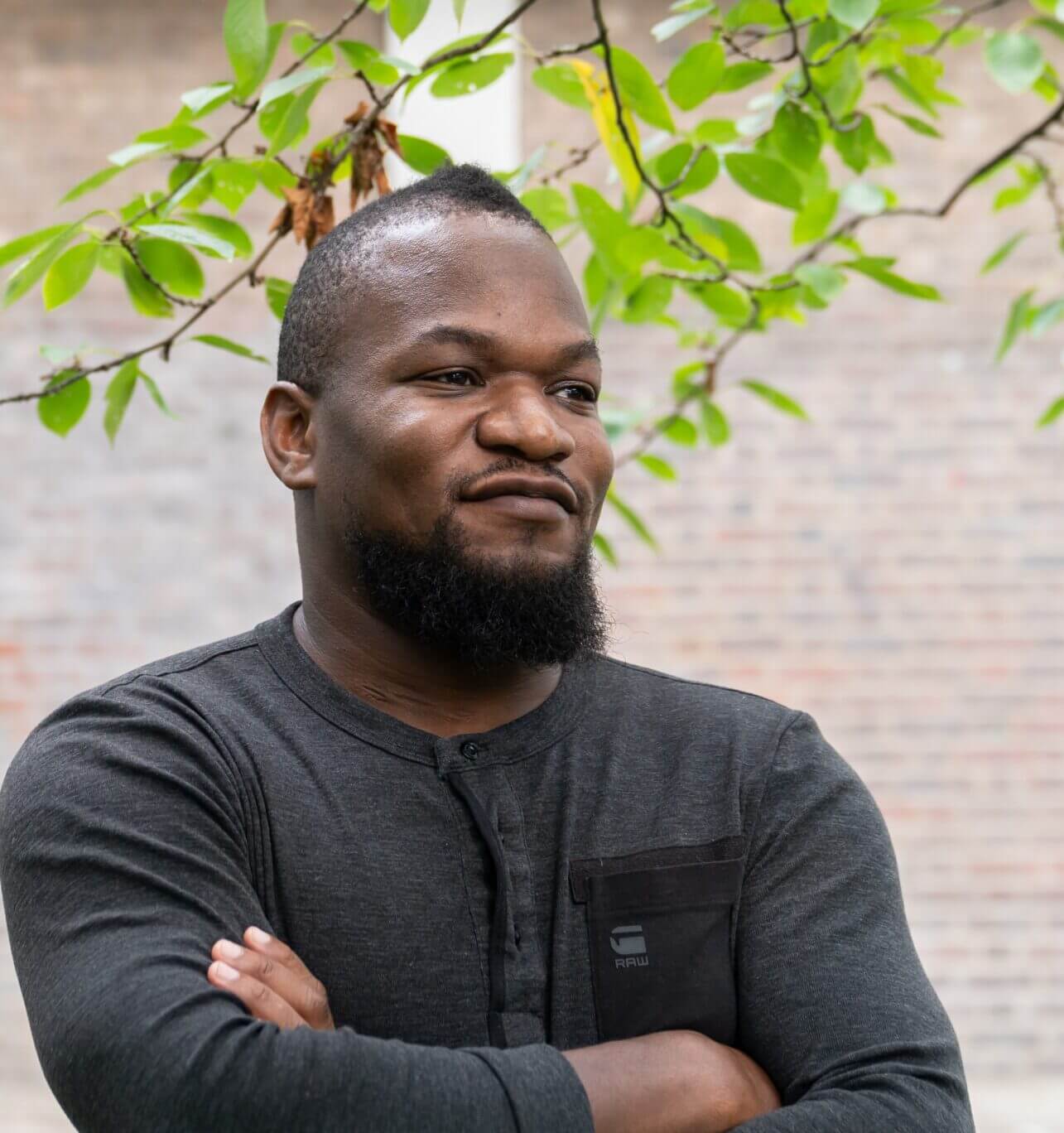
“I was drawn to a career in mental health after studying neuropharmacology and neurobiology during my degree. I worked with young people as a mental health support worker, youth worker, and volunteer in a nursery, prior to training as a child psychotherapist at the Tavistock and Portman. After qualifying, I became interested in working with Looked After and Adopted Children, and teaching on psychoanalytic courses, and these remain areas of enjoyment and interest in my working life.”
It’s hard to say what has been the highlight of my career. So far, I have loved being a child psychotherapist so probably the highlight would be getting accepted onto the training, in the training post I wanted, and the chance to learn it afforded me. I’ve also really relished the challenge of taking on leadership roles in my current posts.
I really like work with groups, from professional networks around children, to clinical and experiential groups I co-facilitate with colleagues. I also really like the opportunities at the Tavistock to teach and learn, not only on M16, but across different courses, and to be part of group relations conferences. Most of all, I really appreciate the familiar and friendly day to day faces, of clinical and non-clinical staff equally, many of which have been here since I was a student.
I think that most courses at the Tavistock can feel like a great undertaking, in terms of time, effort, and financially – certainly the courses I took here did. But the rewards, in terms of interest, enjoyment, learning and fulfilment, are greater still, and really last a lifetime.
Meet Francesca Benjamin, course lead on ‘Psychodynamic reflective practice in mental health (D65)’

Before training as a child and adolescent psychotherapist, I worked for many years using music as way of working with and supporting emotionally vulnerable children and adults, in various role including as music teacher for children with special educational needs.
Over time I became more drawn to the field of psychoanalysis and the way in which it can deepen our understanding of ourselves, others and our relationships, both in a professional and a personal sense. I decided to complete a master’s in psychoanalytic developmental psychology, which was my first stepping stone of the journey to complete my training.
Alongside this I undertook a range of experience working in the field of social care and in educational settings, working with vulnerable children from a range of ages, ethnic backgrounds and cultures. This broadening of experience allowed me to gain a better sense of the challenges and rewards encountered in working with families and children facing complex difficulties. The experience gave me what I needed to then complete my training in child and adolescent psychotherapy.
I am passionate about not only psychoanalytic work in its own right but also in the way it can be applied to other settings in order to enhance understanding of what can be understood about the meaning behind all sorts of presentations and behaviours. I have a particular interest in both applied psychoanalytic work in school settings and in the way emotional factors impact on the experience of both the learning and the relationships that take place in educational settings.
I have always had a keen interest in teaching and education and thoroughly enjoy my role as course lead on the Psychodynamic reflective practice in mental health (D65) course and the ways in which it allows me to bring together my interest and experience in teaching and learning, with my clinical psychoanalytic training.
I enjoy both my clinical work with families and children and my work in teaching, and one of the highlights of my career has been to take up my role as a course lead, which has allowed me to strike a balance between clinical and teaching work throughout my working week. I find this balance very rewarding and very much enjoy being able to draw on my clinical work in my teaching, and vice versa.
I enjoy working with families and children from a range of backgrounds, being able to think about the complex dynamics that take place in families and in early development and to use these theories in order to understand more about the people I work with. I enjoy welcoming students from a diverse range of professional and personal backgrounds to my course, and supporting them along their training journey, either to becoming therapists, or to being able to incorporate some psychoanalytic understanding into roles in other mental health settings, and with the aim of deepening students’ understanding of themselves and others in their work lives.
I would encourage prospective students to apply for courses of interest at the Tavistock and Portman. I feel that the we offer a rich learning environment, brought alive by the clinical work that goes on in the same building, and enhanced by the history of theoretical and working models that have emerged through work at the Tavistock over time. The range of courses means that it is possible to find courses that suit the previous work and learning experiences of individual students, and of course the ultimate career goals that they have.
Meet Martin Gill, course lead on ‘Foundations of psychodynamic psychotherapy (D58L)’ and ‘Inter-cultural psychodynamic psychotherapy (D59L)’
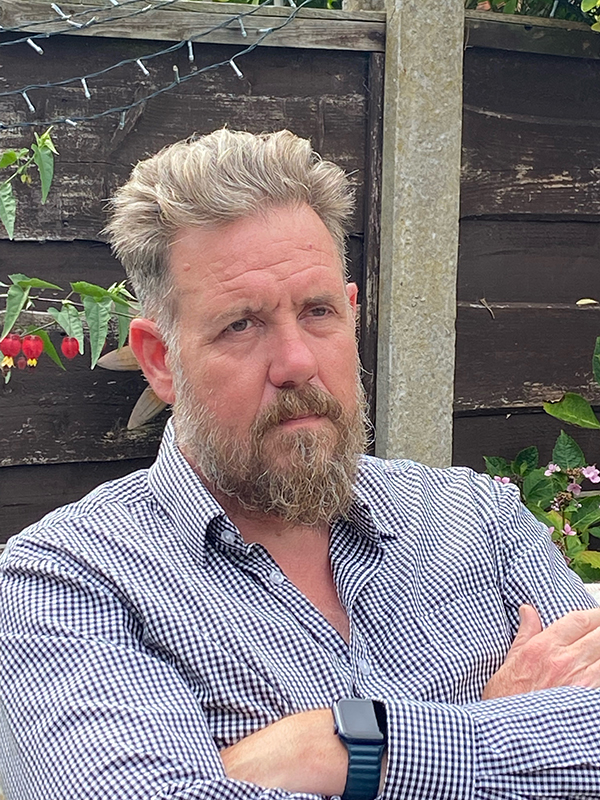
“My background is in nursing and I initially trained as a general nurse, then as a psychiatric nurse. My interest in psychological and talking therapies developed whilst I was working on a mother and baby unit in the North of England and this led me to want to explore and train in various talking therapies.“
As I became more aware and exposed to different models and theories, I trained as a Psychoanalytic Psychotherapist and worked with people suffering with eating disorders for many years. I then undertook further training as a Psychoanalyst.
I’m not sure that I actively chose what I do as I fell into nursing! As a result though, my career has felt more like a journey and exploration that has occurred by gaining experience and being influenced by mentors, supervisors and colleagues who invested their time in me.
As a course lead, I always appreciate the opportunity and privilege that I have to work closely with my students who are all on their own journeys and professional and personal developmental pathways. Along with my colleagues, I am able to play a part in these journeys, and I know how important that is, based on my own experiences.
I hope that I haven’t yet had my career highlight although helping to re-establish psychodynamic psychotherapy training in the North West of England is something I feel very invested in and proud of. Through working with the Tavistock, and other organisations, to further support and develop a growing psychoanalytic culture in the north of England is really special.
To anyone who is considering joining the Tavistock, I would say that being unsure and uncertain is all part of the process, as is being a little scared. It is my role to be available and to allow people who are thinking about the course to come to their conclusion in their own time. I am proud that the student experience on the courses in Leeds is of a very high standard – the Tavistock is an important organisation and central to the history of psychoanalysis and psychoanalytic psychotherapy in the UK, and beyond.
Students on the course can be guaranteed a life changing experience.
Meet Matthew Chuard, course lead on ‘Emotional care of babies, children, young people and families (EC1)’
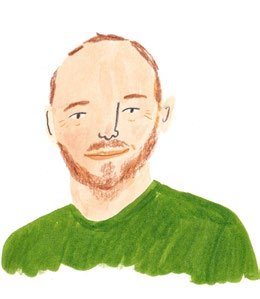
I first became interested in human development at an individual and societal level when I studied A-level psychology and sociology at night school. Following this I went on to study psychology at university and whilst I was on a year studying in America I took an undergraduate course in psychoanalysis and this is where I first encountered the work of Freud and Melanie Klein.
On this course, the lecturer told the class that if we wanted to study psychoanalysis that London was the place to go! Following this advice I moved to London and trained as a teacher with the eventual aim being to train as a child psychotherapist at some point in the future.
I worked as a secondary school teacher for five years and then trained as an educational psychologist here at the Tavistock and Portman. This was a truly enriching experience and I was introduced to ideas from developmental psychology, systemic psychotherapy and psychoanalysis applied to education in a way which really broadened my thinking and understanding of learning and development.
My interest in mental health and psychoanalysis continued to grow in my work as an educational psychologist and I eventually decided that I would like to train as a child psychotherapist. I feel very lucky to have had the opportunity have done two trainings at the Tavistock which are both excellent and very different.
I apply what I learnt in my work as an educational psychologist and as a child psychotherapist to my role as a teacher and the course lead on the Emotional care of babies, children, young people and families (EC1) course. One of the things I love about working at the Tavistock is that I get access to the library – the resources are excellent and the staff are really knowledgeable and helpful.
I am the first person in my family to go university and the journey to get here has been both challenging and rewarding, and with it there have been many anxieties along the way. Will I make it? Will I be good enough? Will they want me? Such feelings and doubts are an essential and integral part of the learning process and must be managed and thought about in order for us to progress and develop in an authentic way, but, at the same time, it is important that they don’t prevent us from taking that first step and making full use of the opportunities that are in front of us.
If you are thinking about applying for this course, I would say to go for it! If you have a genuine interest in the development of children and their families, and in society at large, then EC1 is a great place to start.
Meet Nsimire Bisimwa, course lead on ‘Refugee care (M35)’
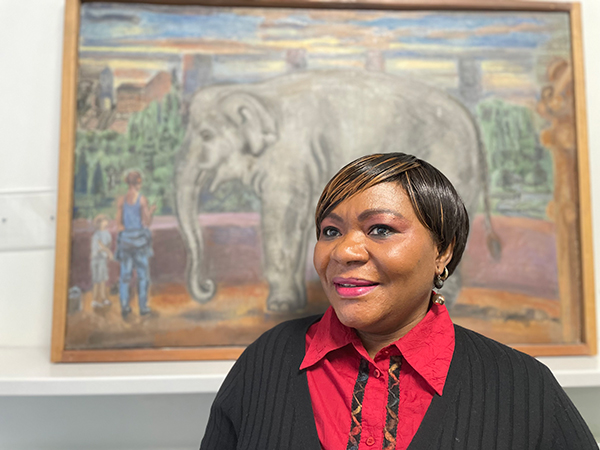
“I grew up in the Democratic Republic of Congo and from a young age I was a human rights and social justice activist in the hope of bringing about positive change in my society.
I have always been against any form of oppression and inequalities and have sought to be the voice of people whose voice has been silenced, I wanted to build a better world where all humans are equally valued. I was particularly struck by the negative impact of social inequalities on people’s physical and mental health. On reflection, this led me to become a medical doctor, a systemic psychotherapist & supervisor, a clinician and a teacher.”
I chose to get in to the work that I do as attending to issues of inequalities is vital. Refugees are often oppressed, dehumanised and marginalised. From my professional and lived experiences, there is not enough good practice around when it comes to meeting the needs of refugees and forcibly displaced people. With the current refugee crisis where there are more than 100 million displaced people in the world, and often battling very hostile systems, we need to be spreading good practice.
Now, more than ever, the Refugee Care masters course is needed to educate practitioners in this field – I believe this is an ethical duty.
What I most enjoy about my clinical work is when I bring hope in hopeless situations. For example, when the children, young people and families I work with tell me that I have made a real difference to them, that they feel safer and that I have helped them to rebuild their lives.
From an academic point of view, I supported a student from a refugee background to undertake the course. This student didn’t believe they could ever do a master’s degree because they were told by their persecutors that they were worthless. They did extremely well and went on to undertake a PHD! This not only boosted their self-worth, self-confidence and self-esteem – they told me that this course made them feel human again!
I feel happy when I see students from all over the world on the course as I feel confident that they are widely spreading the good practices on working with refugees and involuntarily displaced people, and in so doing, contributing to making the world a better place to live.
What I enjoy about working at the Tavistock is that this course responds to the uniqueness of the refugee phenomenon; it offers a rich learning experience as it combines a variety of psychological approaches, such as psychosocial, psychodynamic, systemic, liberation psychology, community narratives approaches and holistic ways to attend to the needs of refugees.
This course is also unique as it taught by lecturers who are specialists in the field of working with refugees, clinicians or lawyers. Furthermore, it offers a placement opportunity where the students learn from the experience, connecting theory to practice and experience how things work in the real work place. This course challenges the pathologisation of the refugee experience and enables growth at a personal and professional level. It is accessible to anyone keen to make a difference in the world, at policy level, social level, community level or personal level.
The Tavistock is open to new ways of thinking, and has pledged to actively become an anti-discriminatory and antiracist organisation. This is important to me.
If someone is unsure about joining this course, I say that they are welcome to bring their doubts and together, we will create room for these to be voiced and attended to.
Meet Shila Rashid, course lead on ‘Systemic psychotherapy (M6)’

Having grown up in the era of the Yorkshire Ripper (a serial murderer in the 1970s) and being an avid reader of French and English novels from my early adolescence, I have been always been intrigued by the many different tapestries of people’s lives, how our minds work and the life experiences that affect the ways we think and behave with others.
This deep curiosity about people, coupled with being seen by my friends and family as a sort of ‘agony aunt’ from early on, I think it was inevitable that I would find my way into training as a psychotherapist, which I undertook at the Tavistock and Portman in the early 1990s.
I then worked as a systemic psychotherapist in the NHS for almost 26 years and became increasingly interested in supervision and training. And, now, here I am, back at the Tavistock, in a very different capacity, as the course lead for the Systemic psychotherapy (M6) course!
For me, there is immense pleasure, privilege and enriched opportunities for learning and growth when I connect with others. Whether family, friends, clients, students, supervisees or colleagues, people inspire me with their multitude and unique lived experiences and identities. Above all, I am constantly humbled by our ability to strive and thrive in the midst of difficult circumstances and suffering, whether through traumatic experiences, poverty, war, abuse, violence, being a refugee, dislocated from home and loved ones, or oppression and discrimination.
In my different roles as a therapist, supervisor, trainer and course lead, foremostly, I enjoy working with others, being able to co-create opportunities for thinking, reflecting, problem-solving and, sometimes, just sitting together with something quite difficult and challenging whilst acknowledging it may take some time for things to be different but we are in it together.
I have enjoyed all aspects of my professional journey, warts and all! I have learnt, and continue to learn, immensely from my clients, colleagues, mentors, supervisors, students and supervisees. Every experience, even the more challenging and traumatic ones, have contributed to my learning and growth. The possibility to make a difference to the lives of others – whether through therapy, supervision or training – is both a huge responsibility and a privilege, and is at the heart of what inspires and impassions me in my work.
I feel I have come to the Tavistock at a historical moment, when it is celebrating its 100 years of existence and contribution to the field of mental health – through provision of a range of psychotherapeutic disciplines, training and academic writing and research.
Having trained at the Tavistock in the early 1990s, I was the sole ethnic minority in my course, with all my fellow trainees and trainers being white. Issues of race, racism and culture were rarely thought about, or held by others, unless I raised these matters myself, which was not always an easy process being a student! I am, therefore, excited to be working with others at the Tavistock at a point of history, following the death of George Floyd, where the organisation has committed itself to becoming anti-racist and making a visible and meaningful difference to the lives of clients, students and staff from ethnically diverse communities.
If someone is thinking about applying I would say that your doubts and uncertainties are welcome and free to be expressed. However, if you do decide to apply, be prepared for a rich experience of learning and growth, personally and professionally, being stretched beyond what is familiar and comfortable, in a stimulating environment, with a rich tradition of contribution to the world of mental health service provision and training, and with tutors, supervisors and administrators who are committed to supporting your development throughout your training journey!
Meet Jason Maldonado-Page, course lead for Child, adolescent and family mental wellbeing multidisciplinary practice (D24)
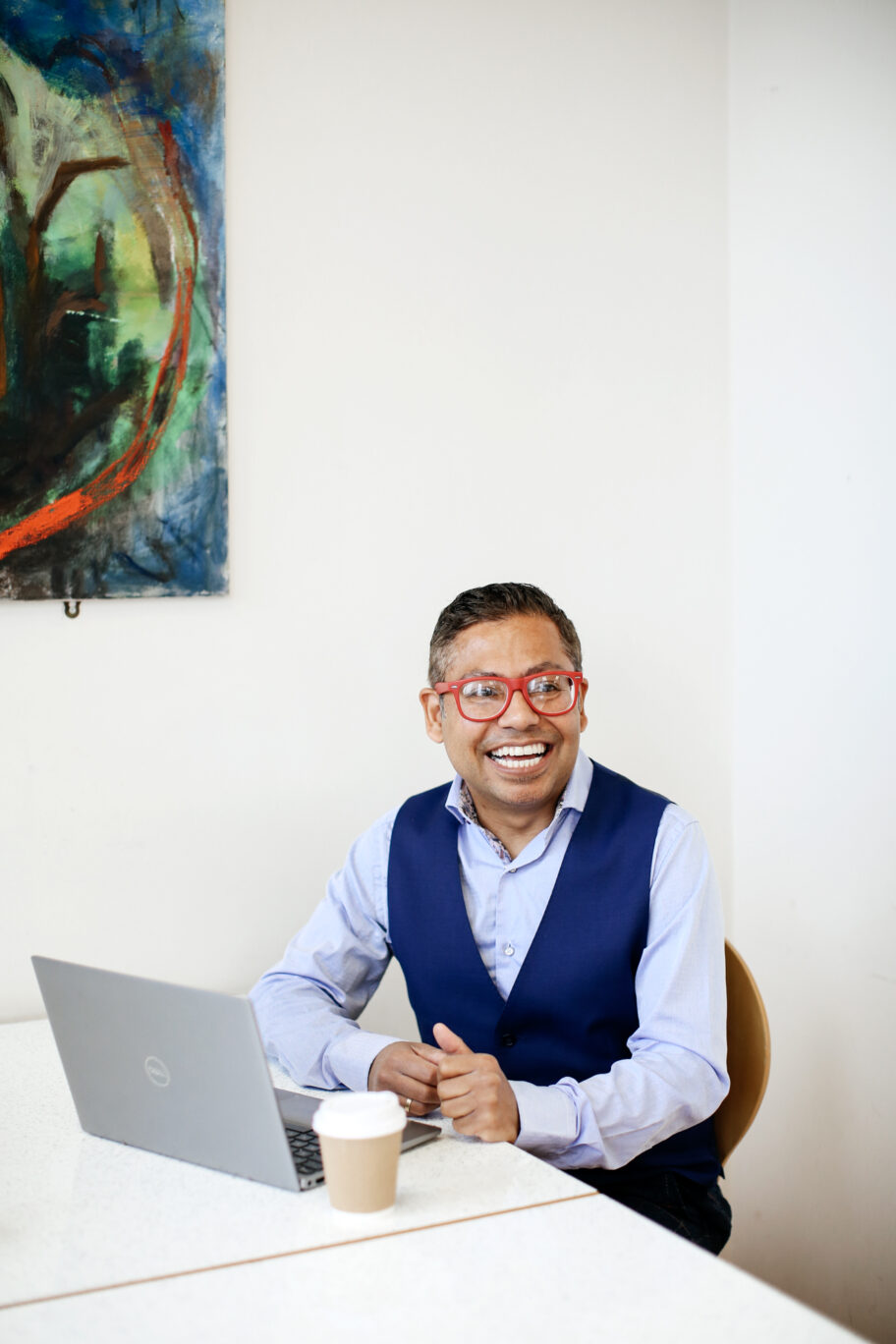
“I am a Nuyorican, having been born and raised in New York city to grandparents and parents who migrated from Puerto Rico. Whilst many aspects of our rich culture and background was preserved, there was a strong migration story of assimilation as a way of tackling marginalisation and oppression, but equally there were stories of acceptance, friendship, and support from people of other cultures. I grew up as part of a vibrant urban community where the definition of family went beyond biology, and where being there for those who needed a helping hand was absolutely the thing to do. Stories of seeking a better life, facing adversity, and valuing people in my family of origin is the foundation to my professional identity as a clinician and lecturer, and equally in my current personal life as a husband and father. I moved to London in 2003, and whilst New York is where I’m from, London is my home.
Neither of my parents finished high school, but despite this they were encouraging and supportive of education. My parents were also foster carers and so we were regularly visited by social workers who all showed genuine care and love to the many children who shared our home. Teachers were always inspiring to me, and I am still in contact with my fourth-grade primary school teacher whose belief that her students could do and be anything showed no limitations. There is no denying that the values from my family of origin, the stories of community support through hardship, the caring, loving, and inspiring social workers and teachers in my life played a significant role in my professional choices. In high school when asked what I wanted to be when I grew up, I would always say either a social worker/therapist or a teacher. I am pleased that my grown-up self was able to become all three.
There have been so many highlights of my career. There have been colleagues who have been inspirational, there have been children and families who have made significant and lasting changes to their lives based on some of my interventions, and I have been with people at some of the lowest points in their life, especially as an oncology social worker where I joined families at the most visceral depths of grief and loss. Seeing students and trainees connect with ideas and grow in their skills, and confidence is always a highlight. I feel privileged to have a career where I can offer something in different ways to so many people even if it is a listening ear.
“I first heard about the Tavistock and Portman in the autumn of 2003 at the start of my social work training in London. I started working clinically in the Trust in the autumn of 2013 and since then I have been encouraged, supported and motivated to develop and to take opportunities available to me in my professional identities as a social worker, a family and systemic psychotherapist and a lecturer. I love walking through the corridors of the Tavistock and Portman and seeing so many people that have trained and then gone onto fulfilling careers here. I am proud to work in an organisation that is renowned for its pioneering clinical and academic contribution in the field of mental health, and the Trust is full of passionate and committed clinical, academic, administrative and support staff who share my values and who continue to inspire me each day.
I have been impressed with the Trust’s commitment to equality, diversity and inclusion and I want us to train a diverse workforce representative of the communities we live and work in. I encourage applications from those who identify as Black, Asian, minority ethnic or global majority, from gender, sexual and relationship diverse people, those who identify as LGBTQ+, from disabled people, and people from all faith groups. Applying to study and train here could be the start of the rest of your life and can be the ticket that can take you on an amazing academic journey where the destination knows no limits.”
Meet Shantel Thomas, course lead for Social work (M23)
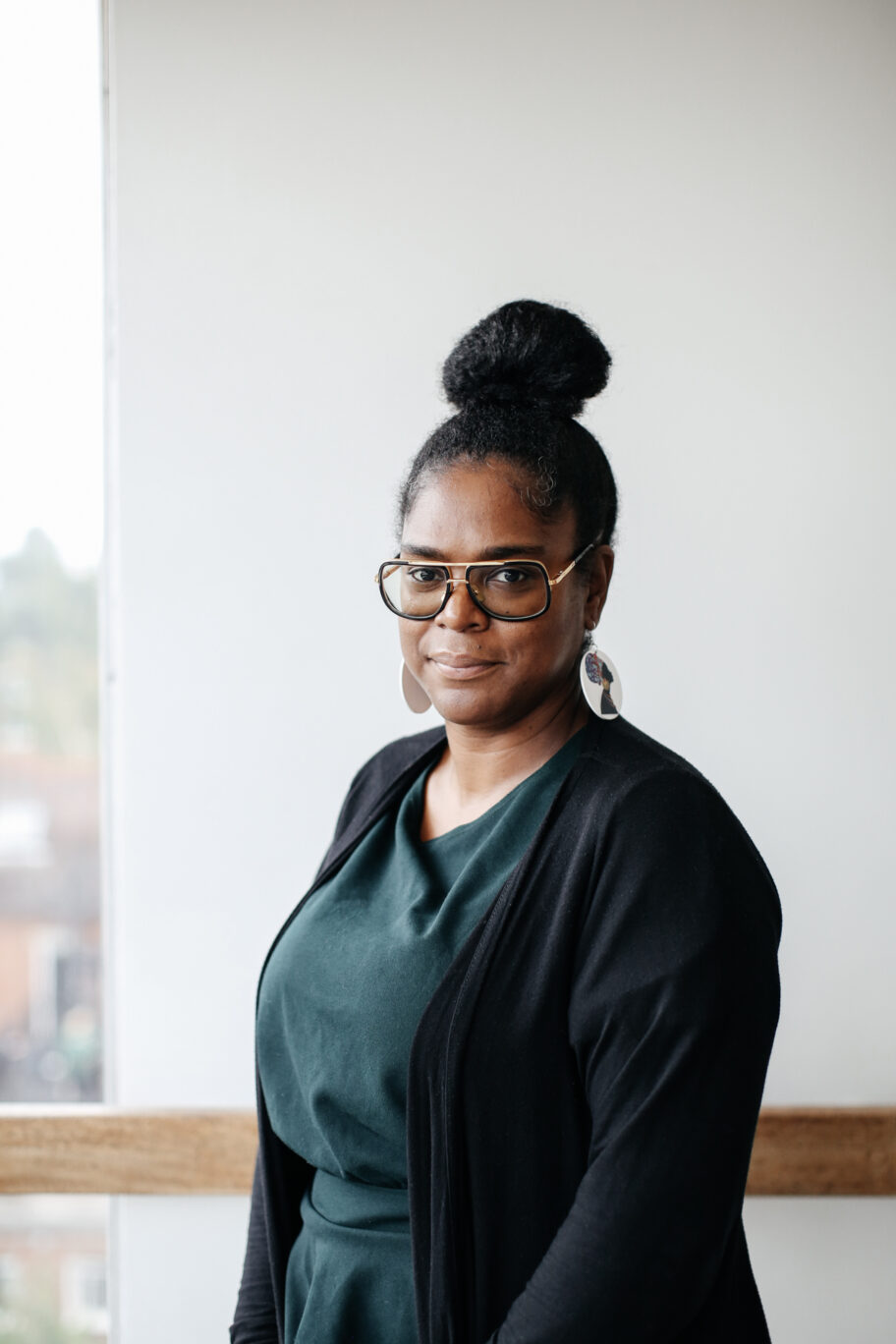
“I am a qualified social worker and spent the first twelve years of my career working in children and families safeguarding teams in local authorities, before moving into higher education and then the NHS. Before training to be a social worker, I worked with young offenders and enjoyed working alongside them to help divert them away from crime. Moving into social work was a natural progression and afforded me more autonomy to work with families to effect behaviour change.
My current roles at the Tavistock and Portman are clinical professional lead for social work and course lead for our Master’s degree in Social work (M23), which is delivered jointly with the University of East London. I love the flexibility offered with my roles and the great team I work with.
The highlight of my career thus far – and I say thus far as the best is yet to come – was starting my PhD. This was a pivotal moment as it has given me the opportunity to study me. My research is looking at race and leadership using an autoethnographic lens.
To anyone thinking about applying to study at the Tavistock and Portman, I’d say: come and speak to us. We’re always happy to answer questions and we will alleviate any fears or worries you may have.”
Meet Rodrigo Sanchez, course lead for Psychodynamic psychotherapy (M58 / BM58)
Course lead for Psychodynamic psychotherapy (M58 / BM58)

“I started my career in clinical psychology and eventually became a psychodynamic psychotherapist, and later, a psychoanalyst. Initially, I worked with children in children’s homes, in different parts of the world. Then, I made a life-changing move to the UK, where I began working with people experiencing homelessness. I have also been working in my private practice for over 12 years.
My path into psychoanalysis was a bit like discovering a hidden treasure. Like many of us, I first explored psychoanalysis when I needed help myself. Over time, I found myself drawn deeper into it as I read more about it and gradually became captivated by its insights and ways of understanding life. It gave me the opportunity to question myself, humanity, society and my role it, in ways that I didn’t know was possible.
Finding my “place” in private practice took quite a bit of time – more than 15 years, in fact! But it was during those years of dedicated work that I experienced a transformative moment. I reached a point where I felt truly comfortable and effective in my role as a psychoanalyst. The journey was long, but the immense satisfaction of reaching that point made every step worthwhile.
After graduating, you might have this idealized image of being able to listen to people’s problems and provide them with solutions. However, in reality, it’s not quite that simple. We don’t possess all the answers, and the complex human psyche doesn’t always reveal its secrets readily. Instead, we work with a multitude of theories that aim to shed light on these mysteries. But, more than trying to look for a light, I think that I learned to be comfortable in the dark, and that made the change for me. It takes time to develop the skills and sensitivity necessary for this work. Until you reach that point, you find yourself empathetically listening to people’s suffering without always having a clear roadmap on how to address it. That, I must say, can be quite challenging.
In my current role at the Tavistock and Portman, I’m constantly exploring innovative ways to communicate psychoanalytic concepts and their practical applications. For me, it’s a delightful blend of pedagogy, theory, and practice. I take this responsibility seriously, as it shapes the future generations of therapists.
I would tell any potential applicants that this is a remarkable opportunity to become a part of the rich history of an outstanding institution. You’ll meet fascinating individuals and find the journey deeply rewarding. It’s a chance to be part of something truly special.”
Meet Gwen Hanrahan, course lead for Consulting and leading in organisations: psychodynamic and systemic approaches (D10 / ED10)
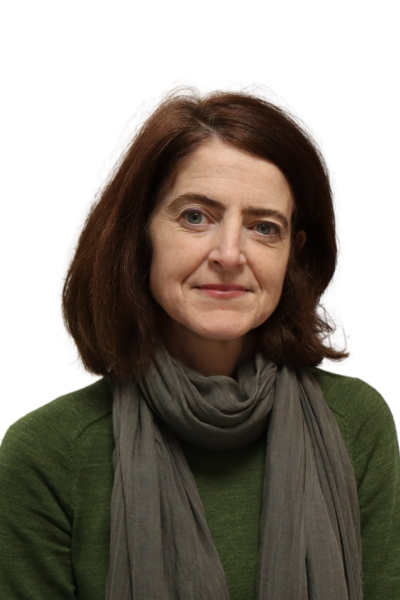
“My background was strategy development in cross-cultural contexts. I worked with a global aerospace manufacturer and then for over fifteen years as an organisation and leadership consultant in sectors such as life sciences, nuclear energy and financial services. This work sparked my interest in the unconscious dynamics of groups and in organisational life.
Time and again, to simply draw on linear rational thinking seemed to fall short. It didn’t always explain the group behaviours I was witnessing, and that I too was caught in, particularly when facing novel or difficult situations. Something was getting in the way, operating unconsciously, I might now say.
When I attended my first group relations conference, and delved into psychoanalysis, I knew I had found a life raft. We can know we are in the grip of something – but not know at all what it is. A psychodynamic systemic frame helps me make sense of my experiences in role so as to collaborate, lead or consult more effectively in the work itself.
My background has always had a cross-cultural flavour to it and working at the Tavistock and Portman echoes this, with its multi-cultural staff and rich history of disciplines and traditions. It makes it very exciting and stimulating place to work and study. It’s not always straight forward, but it’s definitely immensely rewarding. And I get to nod to Freud (ok, his statue!) as I pass by on my way into the Tavistock Centre.
Our Master’s degree in Consulting and leading in organisations: psychodynamic and systemic approaches (D10/ED10) is a fabulous course and it’s always a highlight to be part of the journey of students as they find different ways of understanding organisations, and their part in them. If you’re considering making an application to the course, I’d say: Apply! You are unlikely to regret it, but it won’t be an easy ride.”
Meet Alexandra de Rementeria our co-course lead for Perinatal, child, adolescent and family work: a psychoanalytic observational approach (M7)
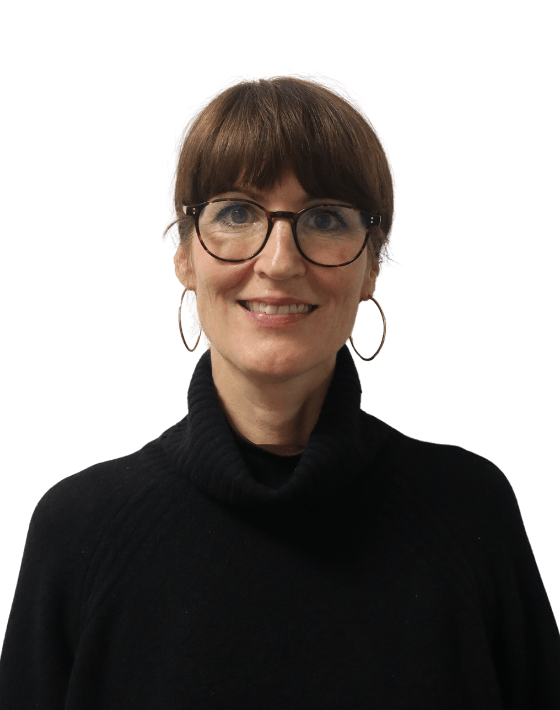
“My first degree was in English Literature. I trained as a primary school teacher and did a Psychology degree at the Open University while teaching reception class, thinking I wanted to be an Educational Psychologist. I was already familiar with some psychoanalytic ideas, partly from psychoanalytic literary theory in my first degree, but also through a friend and through my own therapy. I knew that I wanted to work individually with the kids that couldn’t learn, but eventually I came to wonder whether child psychotherapy might be the best fit for me. The primary school where I worked was developing a Children’s Centre, so I started to work with younger children and babies too, while beginning a Master’s degree at The Tavistock and Portman.
I initially approached the course as a means to an end – a pathway to the clinical training – but I was not prepared for how radically it would change me as a teacher, professional and person. As a schoolteacher, you are given to understand that you should not have powerful emotional reactions to the children you work with, and that if you do you should push down and deny those feelings. The course helped me to understand that if I could be in touch with, and think about, my rage, my despair, my love towards those children, I might better understand both the children and myself. Doing this in a supportive seminar helped me to respond to respond with confidence and kindness to the children’s provocations and need for positive regard when I was back in the classroom.
After completing my Master’s degree, I took a few years out to have a family, and Dilys Daws invited me to help her with writing a baby book for parents, which won the British Medical Association award for best non-medical book. I then completed the professional doctorate in Child and adolescent psychoanalytic psychotherapy (M80) and went on to work in a number of different CAMHS, perinatal and schools services. I am now working as Principal Child Psychotherapist at Lambeth CAMHS and as co-course lead for our Perinatal, child, adolescent and family work: a psychoanalytic observational approach (M7) training.
I’ve been asked if I wish I’d done a Psychology degree in the first place, but I probably draw on my English Literature degree more than my Psychology degree in my work, and I find it reassuring to know that a meandering path can enrich your career in ways that you might not be able to predict at the start.
If you’re thinking about applying for your own Master’s degree, I can’t explain what you will gain because it is all about experiential learning, which just means that you have to find out for yourself. Only you can do one of our courses the way you would do it, so I can’t tell you about that yet. You’ll have to come, and we can find out together.”
Meet Emily Mercer our course lead for Complex trauma: the Tavistock model (D19)
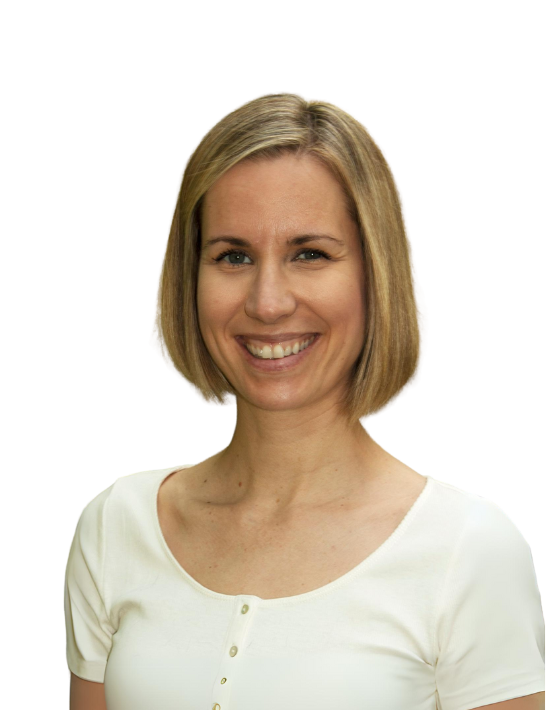
“I chose to complete my psychodynamic psychotherapy training at The Tavistock and Portman because of its reputation for delivering quality clinical services and education. The teaching and supervision that I received was excellent, so I was not disappointed. I got to know the Trauma Service, where I am now a Senior Psychotherapist, during that training, and I was drawn to it because the treatment model aligns closely with the way I work. There has always been a need for training like Complex trauma: the Tavistock model (D19), however there hasn’t been an acknowledgment of this need. Now, understanding of the significant impact that trauma has on individuals, families, communities and society, and of the need for specialised, trauma-informed treatment, is growing – along with demand for this kind of specialised training. Developing such a course has been a career ambition of mine so I was thrilled when I heard about the prospect of the new D19 training, and the course lead role. If you are considering our course, I would encourage you to apply and to take full advantage of all that the training has to offer – from the robust academic programme to the placement in our award-winning Trauma Service.”
Meet Nick Waggett our course lead for Advanced practice and research: consultation and the organisation (D10D)
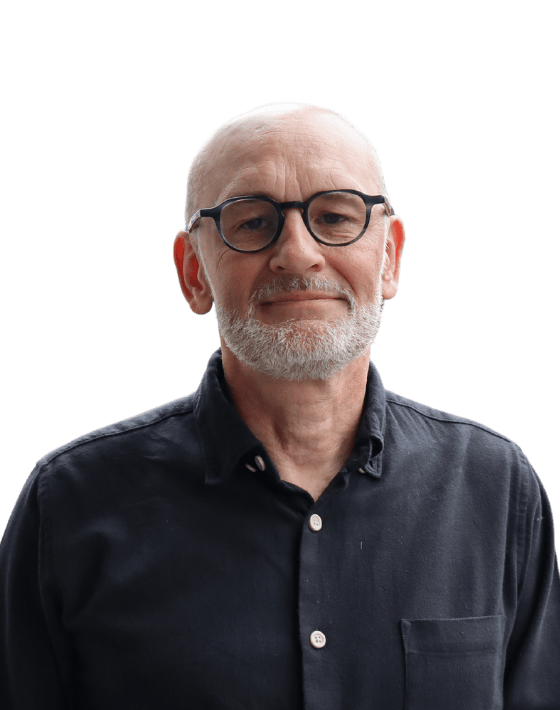
“I was a manager in the NHS for 26 years and, in parallel with this, developed myself by completing first a Master’s degree then a Professional Doctorate at the Tavistock and Portman NHS Foundation Trust. Both were transformational experiences, and I am now course lead for the Professional Doctorate!
In this role, I particularly enjoy teaching and contact with students. It is a pleasure to be alongside them as they undertake courses and training that lead to genuine change and development in their skills and capabilities.
A highlight of my own career to date was setting up a new child and adolescent psychoanalytic psychotherapy training centre in the North of England in 2002. Until that time, there had been no local infrastructure for the development of this important workforce, and the new centre was a success. I remained involved with the profession for many years, including as CEO of the Association of Child Psychotherapists.
Studying at the Tavistock and Portman is a different experience from any courses you may have undertaken previously but the incredibly experienced and knowledgeable teaching and supervising staff will be there to guide you through your student journey so that you can emerge in a very different place from where you started.”
Meet Louise Grant our course lead for Advanced practice and research: social work and social care (D55)
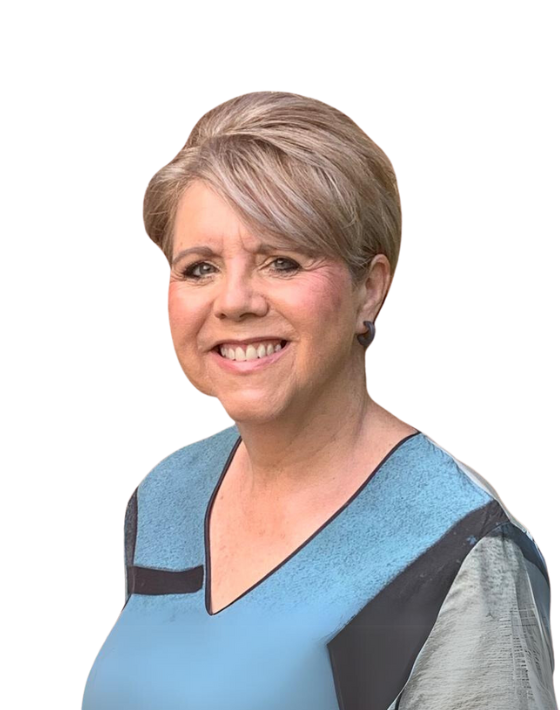
“I qualified as social worker a very long time ago and loved direct practice and leadership in social work organisations. Over the subsequent years, I discovered my true passion was learning, gaining knowledge and also sharing this with others, so in 2008 I became a social work academic. Along the way, I met a number of inspirational colleagues who gave me the confidence to undertake research and take on leadership roles. I gained my PhD aged 50 and strongly believe that research can enhance our knowledge of what works in social work practice and that in turn can make positive changes to people’s lives.
Social work was definitely a vocation for me. I wanted to help people, and to work alongside them in times of personal challenge has been a privilege. The challenges in our society remain, and the impact of poverty, discrimination and racism continue to affect children and their families. Social work is a profession that seeks to make a difference, and this is a personal and professional driver. As course lead for our professional doctorate programme, I work with experienced social workers and social care workers who, through their practitioner research, strive to make a contribution to improving direct practice. It is an honour to supervise them and support them in this endeavour.”
Lorem ipsum dolor sit amet, consectetur adipiscing elit. Ut elit tellus, luctus nec ullamcorper mattis, pulvinar dapibus leo.
Lorem ipsum dolor sit amet, consectetur adipiscing elit. Ut elit tellus, luctus nec ullamcorper mattis, pulvinar dapibus leo.
Lorem ipsum dolor sit amet, consectetur adipiscing elit. Ut elit tellus, luctus nec ullamcorper mattis, pulvinar dapibus leo.
Lorem ipsum dolor sit amet, consectetur adipiscing elit. Ut elit tellus, luctus nec ullamcorper mattis, pulvinar dapibus leo.
Lorem ipsum dolor sit amet, consectetur adipiscing elit. Ut elit tellus, luctus nec ullamcorper mattis, pulvinar dapibus leo.